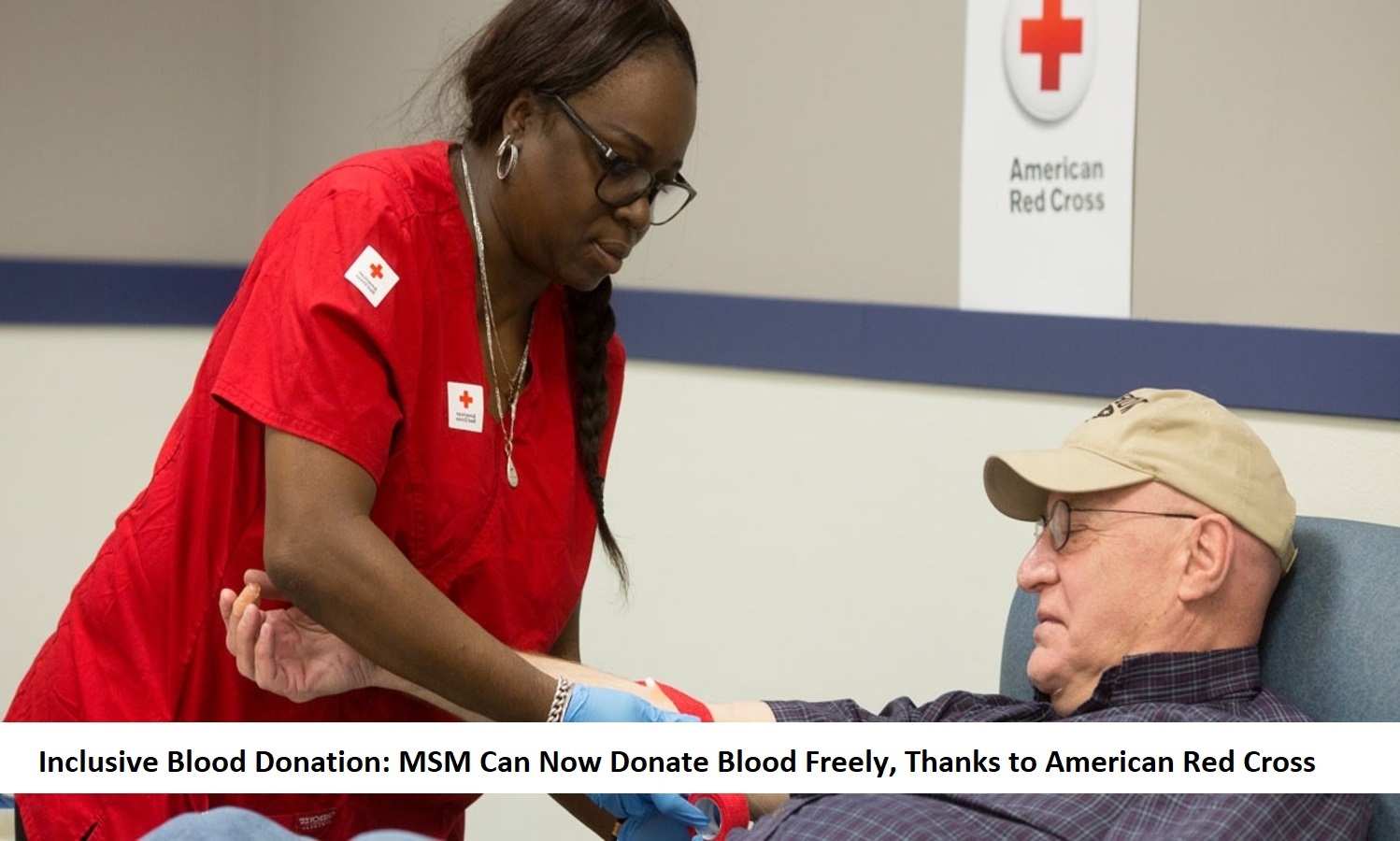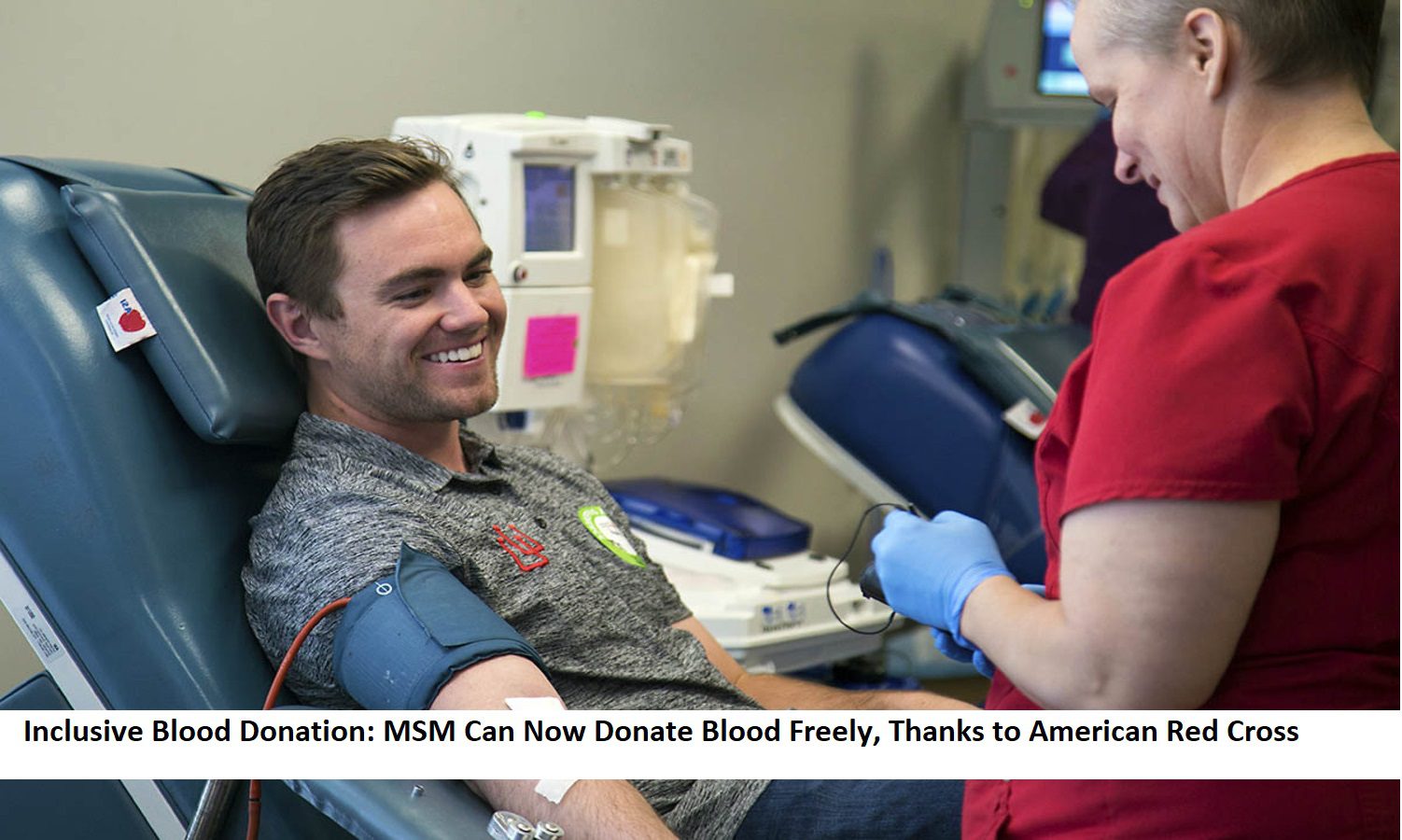Inclusive Blood Donation: MSM may donate blood without worry, thanks to the American Red Cross. The recent change in government coincided with massive developments.
HIV/AIDS prevents homosexual and bisexual men from donating blood. They can now. The FDA says a person’s sexuality shouldn’t stop them from donating a life-saving gift.
Stop inquiring about gayness. The Red Cross prioritizes fairness. Blood donors must wait three months after sexual activity with a new partner or multiple lovers, regardless of sexual orientation. This alteration explains why HIV transmission from oral to sexual partners is higher. Being close isn’t necessarily dangerous.
Red Cross donors can choose their gender. The group understands and accepts gender transformation. This simplifies charity donations.
“We understand that a blood donation deferral because of anal sex may make gay and bisexual men feel like they are being unfairly targeted,” the Red Cross website says. This statement indicates that the group aims to push its inclusiveness.
If they haven’t met new partners or more than one person in three months, sexually active people can participate in the studyresponsible, straightforward, and risk-reducing membership selection.
The American Red Cross understands the importance of its mission and blood products as a vital guardian. This shows how crucial this transformation is. The Red Cross pledged to work with the FDA to persuade everyone to donate blood in a dynamic statement.


Despite the busyness, intelligent people have time. PrEP and PEP should not be taken after three months. Remember that giving blood doesn’t require stopping these medications. Two years must pass before you may get another HIV-protective oral PrEP shot. Doctors know that complicated medication combinations make HIV diagnosis difficult attention donors.
The FDA will continue to study pre-exposure prophylaxis (PrEP) with organ donation. The 1980s HIV/AIDS tale is finally becoming fair. Fairness is less rigid now. This is a good start, but people need stress-free treatment.
READ MORE: Bella Hadid Battle and Lyme Disease: A Journey of Strength and Resilience
Our Reader’s Queries
What are the 4 types of blood donations?
There are different types of blood donations which serve unique purposes:
– Whole Blood Donation: This type of donation is the most versatile and common.
– Power Red Donation: This involves giving a concentrated dose of red cells, which are essential for those requiring regular transfusions.
– Platelet Donation: Platelets are vital for blood clotting and this donation specifically helps patients with clotting disorders.
– Plasma Donation: This donation involves giving plasma, the liquid part of blood that contains important proteins for various medical treatments.
Can O+ receive blood from anyone?
O positive blood plays a crucial role in trauma treatment. Individuals with O positive blood can only accept transfusions from O positive or O negative blood types. The high demand for O positive blood means it is often one of the first blood types to be depleted during a shortage.
What does it mean to be deferred from donating blood?
Donor deferral occurs when someone is unable to donate due to current eligibility criteria. This waiting period is essential to safeguard the well-being of both the donor and the recipient of the donated blood.
Why is type O negative blood the universal donor?
Type O negative blood stands out for its unique lack of antigens, making it the only blood type with this distinction. This means that it won’t cause an immune reaction in recipients, regardless of their own blood type. Antigens, which are surface proteins on red blood cells, are absent in type O negative blood, setting it apart from other blood types.

